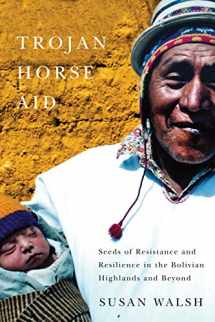
Trojan-Horse Aid: Seeds of Resistance and Resilience in the Bolivian Highlands and Beyond
Book details
Summary
Description
In a compelling first-hand account of development assistance gone awry, Susan Walsh recounts how national, international, and multilateral organizations failed the Jalq'a people in the Bolivian Andes during the early millennium. Intent on assisting potato farmers, development organizations pushed for changes that ultimately served their own interests, paradoxically undermining local resilience and pushing farmers off their lands. Trojan-Horse Aid challenges the idea of Western capacity-building, particularly the notion that introduced technologies related to food production are essential ingredients for sustainable livelihoods among farmers. Walsh argues that the well-intentioned organizations working in Jalq'a communities paid insufficient attention to longstanding knowledge that has supported human survival in regions where the natural world has the upper hand. Walsh goes beyond a critical review of misguided aid to offer reflections on the relationship between indigenous knowledge and resilience theory, the hopeful future of development assistance, and the contradictions in her own hybrid role as researcher and development-practitioner. In light of growing global concern over the worsening food crisis and interconnected climate extremes, Trojan-Horse Aid offers an important critique of development practices that undermine peasant strategies as well as suggestions for more effective approaches for the future.


We would LOVE it if you could help us and other readers by reviewing the book
Book review



